VOL.03 · November 2022

VOL.03 · November 2022
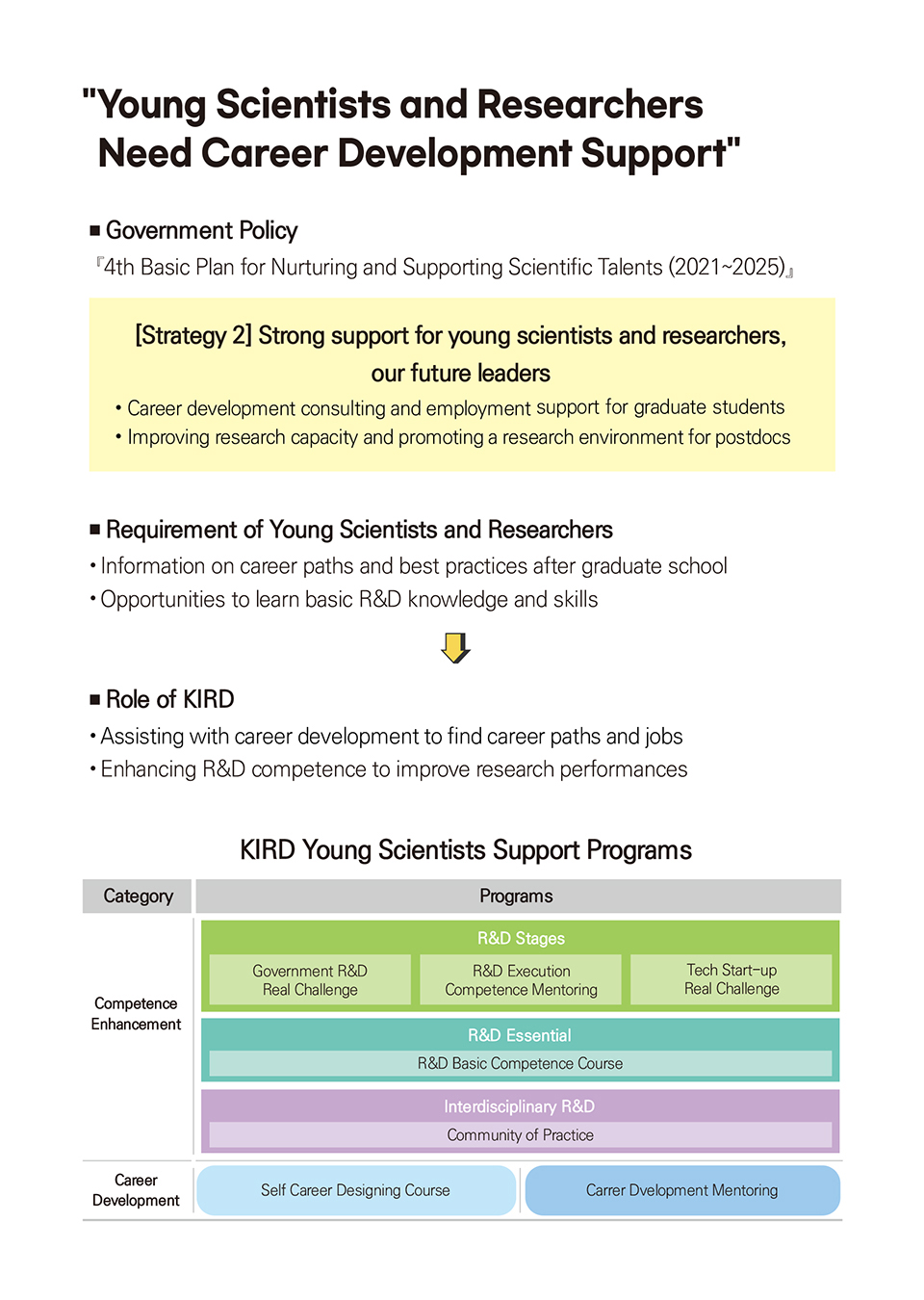
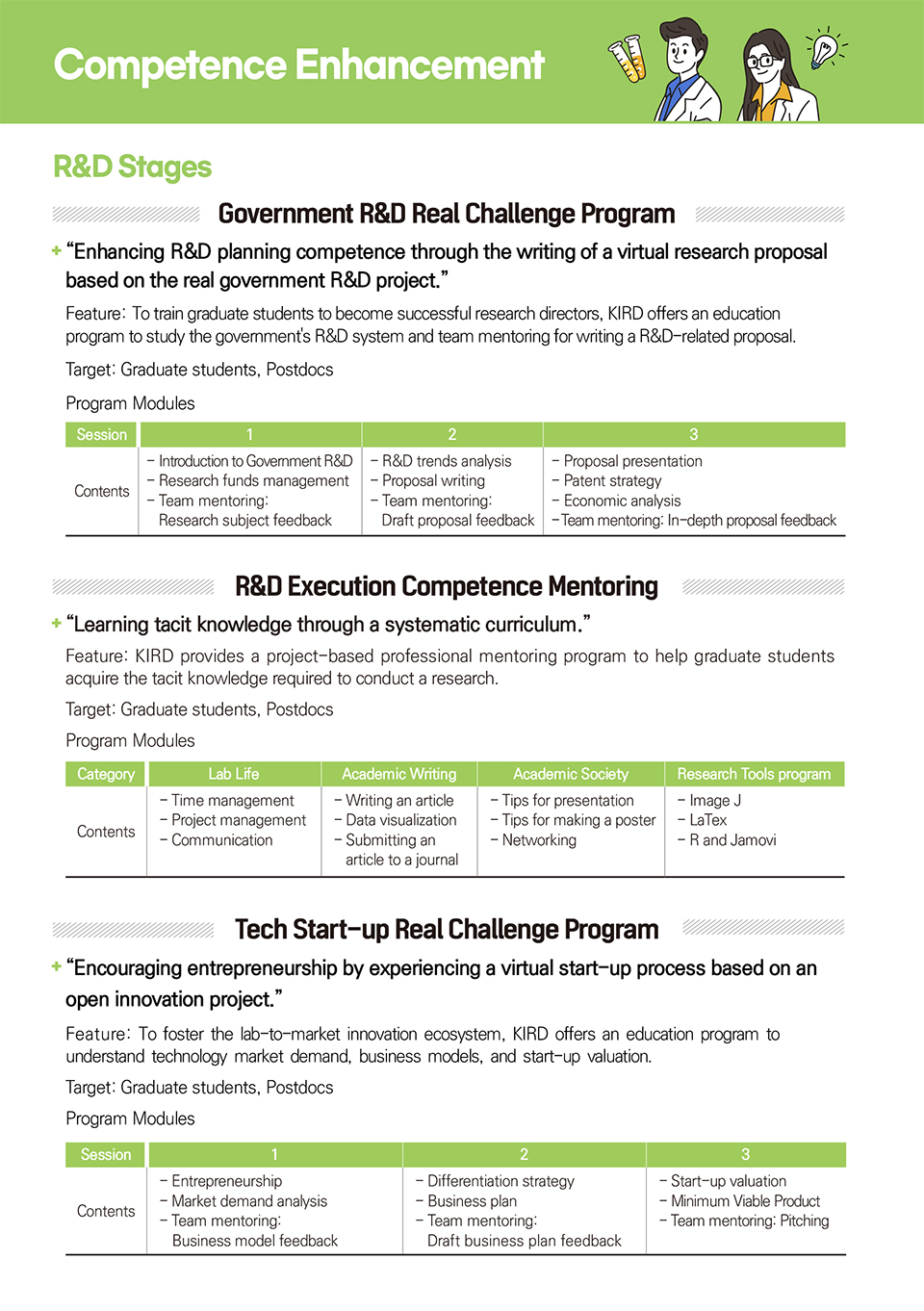
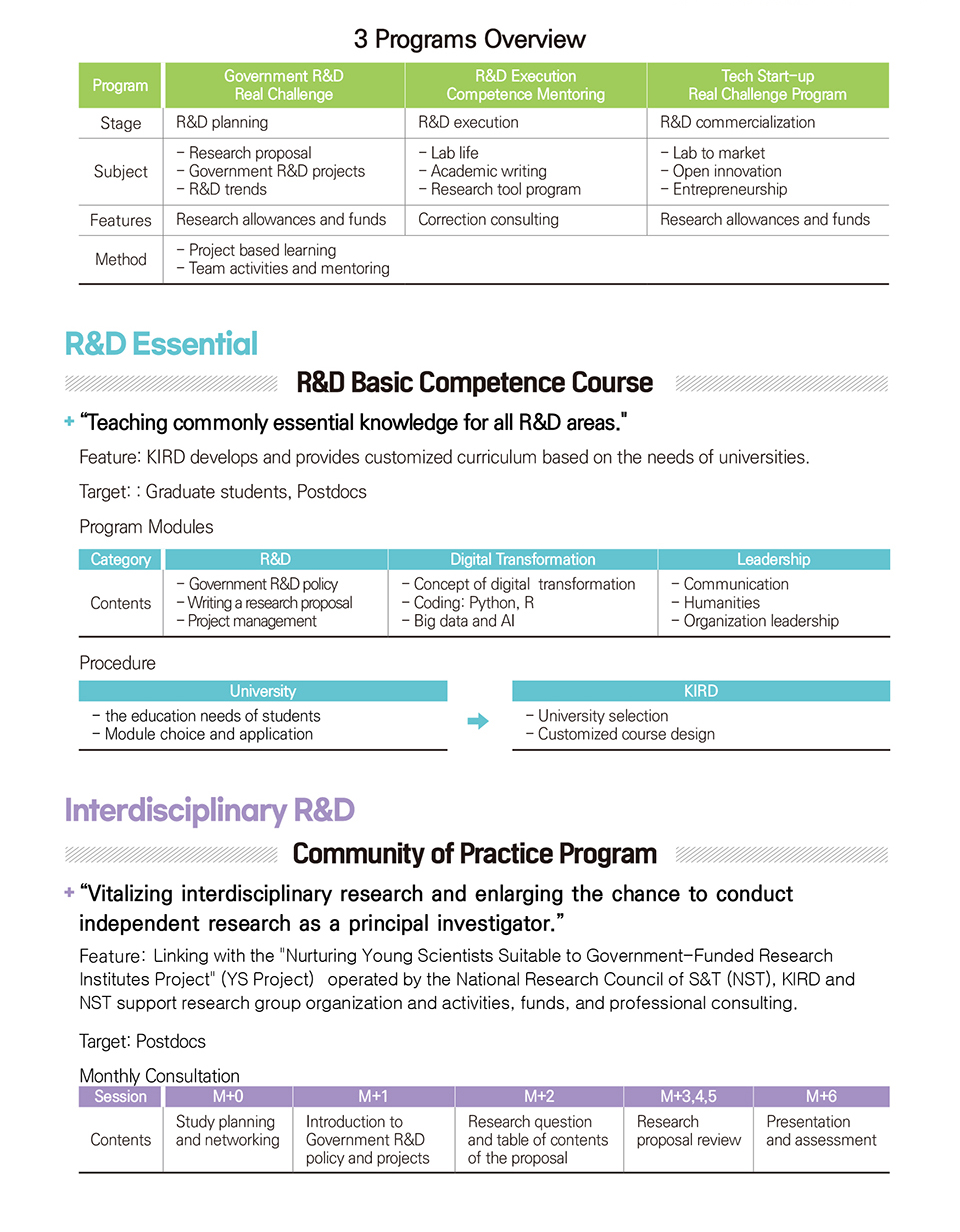
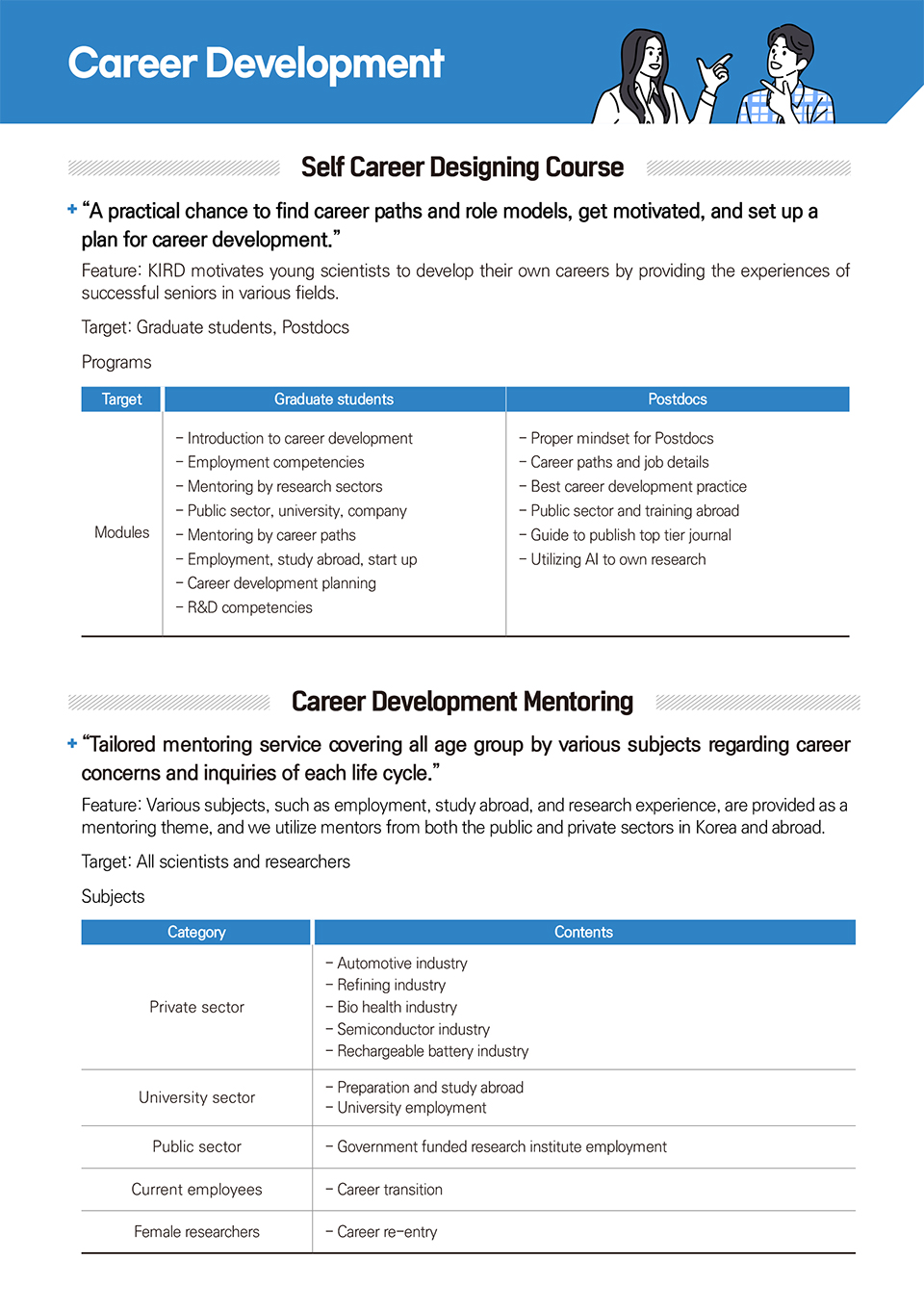
KIRD has been offering life cycle-based “Career Development Mentoring for Scientists and Engineers” with the aim of supporting the self-directed growth of scientists and engineers since 2020. KIRD launched its service in full force in 2021 after establishing its service system and running a pilot program in 2020. In its infancy, the program was operated on the basis of 1:1 mentoring. However, the program has evolved every year to expand its method and target, contributing to the career development and transition of graduates, postdocs, incumbent professionals, and highly experienced individuals in the science and engineering fields. In particular, KIRD started offering a university-associated group mentoring program to reflect the needs of graduates in the science and engineering fields starting in 2022, which is the third year of the program's operation.
To do so, KIRD began with identifying and analyzing the needs of scientist and engineers. By holding the "Career Development Council for Scientists and Engineers," which targets major universities (25 universities in total, including national flagship universities, POSTECH, UST, and 4 Institutes of Science and Technology (KAIST, GIST, DGIST, and UNIST), KIRD conducted a Focus Group Interview (FGI) to draw practical insights.
The KIRD career development mentoring program is divided into group mentoring and personal mentoring. Group mentoring is again divided into two types: public-recruitment type and university cooperation type.
[Group Mentoring]
“Group mentoring” focuses on the following three purposes:
Competency Enhancement
Evaluate mentees’ individual competency to maximize mentees’ strengths and complement shortcomings.
Solution to Career Concern
Provide psychological/emotional support through career consultation.
Career Path Design
Support career and academic path design by sharing the learning experiences of mentors.
“Public Recruitment Type” group mentoring sessions were held ten times in the first half of the year for various individuals in different stages of their career, from graduates to incumbent professionals in industrial, academic, and research fields, from women who returned to work to highly-experienced professionals. The theme for each session consists of employment, studying abroad, career transition, career return, and career re-exploration. When a theme-based group mentoring program is planned, KIRD recruits the applicants (max. of 30 people) via “K-Club,” a comprehensive career development support platform for scientists and engineers.
“University Cooperation Type” group mentoring sessions are going to be offered ten times in the second half of the year, targeting students in S&T-centric research universities. The pilot program is going to target six universities, including four Institutes of Science and Technology (KAIST, GIST, DGIST, and UNIST), UST, and POSTECH. The theme for each session is going to be determined through demand research. Once applicants and themes are selected, the course will be provided in a group-based format (max. of 30 people).
[Personal Mentoring]
“Personal Mentoring” offers a more comprehensive 1:1 mentoring service ranging from study, competency, and career path to the concerns of individuals. The program is operated all year around. When a mentee selects and submits a request for a mentor on the K-Club platform, the PIC (person in charge) of the KIRD mentoring program reviews the appropriateness of the match between mentor and mentee as well as the suitability of the mentee’s inquiries before pairing up the two.
[Personal Mentoring Operation Method by Type]
| Method | Purpose | Operation Details |
| Expert’s comment | Basic solution | Q&A via K-club bulletin board |
| Real time video call | In-depth solution | Conversation via an online video call |
KIRD’s mentoring service for scientists and engineers offers a wide range of highly-experienced mentors from all walks of life, including industrial, academic, and research fields. In addition, it provides customized mentoring services as the program consists of various levels depending on one’s career stage, such as early career, mid-career, and late career.
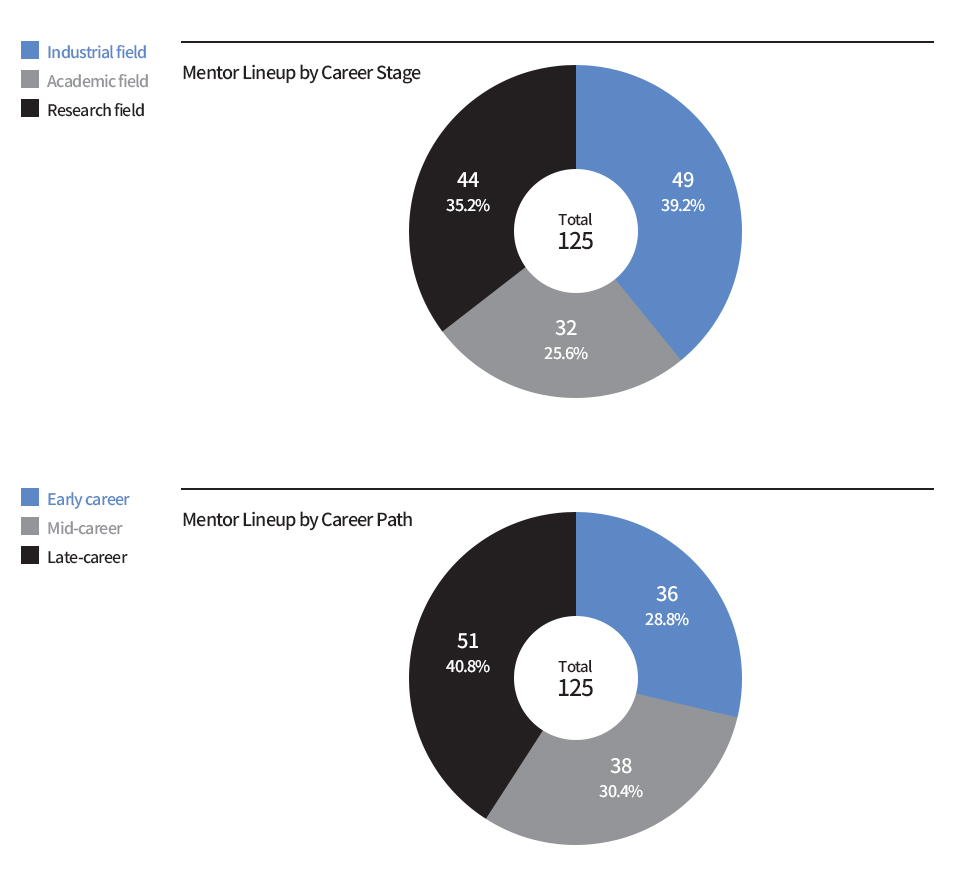
KIRD mentors are selected through the following standards and procedures:
[Standards for Mentor Selection]
- Incumbent workers in private, university, and research institutes in science and engineering fields with a minimum of 2 years of experience
- Individuals with science and engineering backgrounds who are able to provide career consultation and share their experiences
- Individuals who have experience providing career consulting, mentoring, and coaching for people in fields of science and engineering
- Individuals who meet the qualification standards for KIRD experts
[Mentoring Selection Method and Procedure]
Mentors are selected via two channels: public recruitment and referral. Potential mentors can submit their mentor application form via the K-Club platform, or KIRD can select mentors after validating the referred candidates’ expertise, career suitability, and willingness.
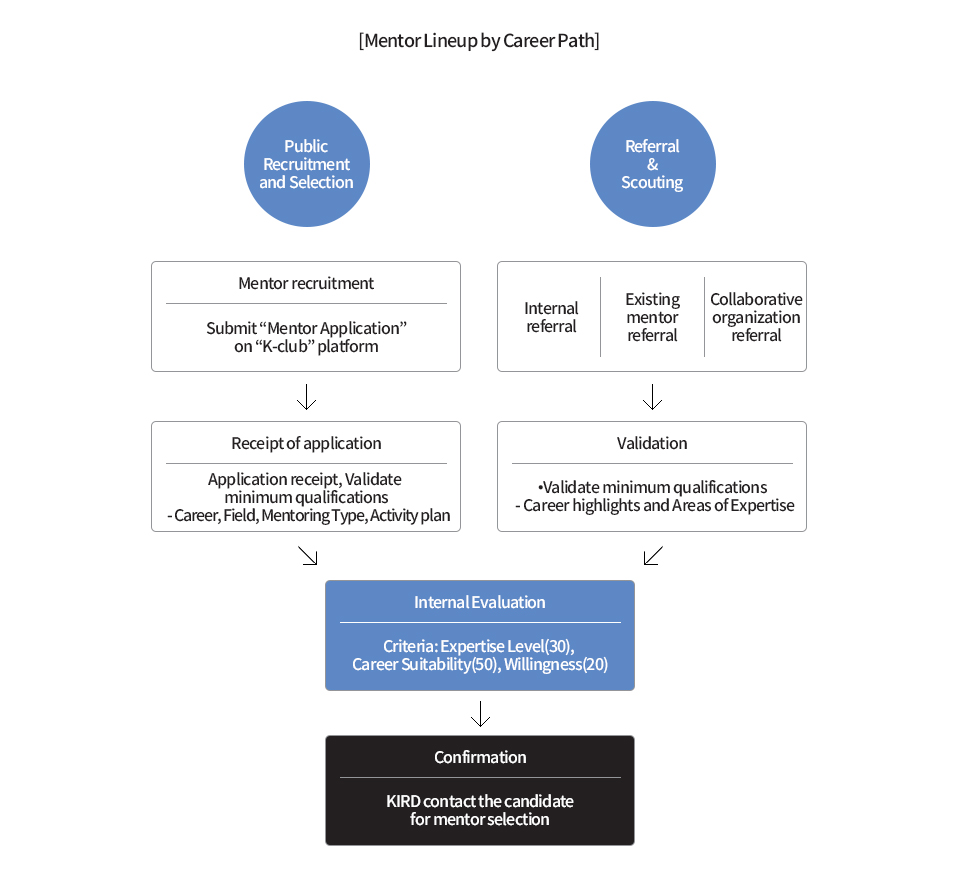
KIRD mentoring has been providing practical and hands-on tips and guidance from career design to employment and business establishment. Mentees of the program said that they have obtained not only emotional support but also a lot of useful information from their mentors’ ample field experiences. KIRD is going to keep striving to provide a top-notch life-cycle-based resource development program for scientists and engineers, which encompasses career exploration, career development and transition, career utilization, and settlement. Furthermore, KIRD will spare no efforts in providing customized career development services and information and in laying the foundation for vibrant networking opportunities among scientists and engineers in industrial, academic, and research fields.